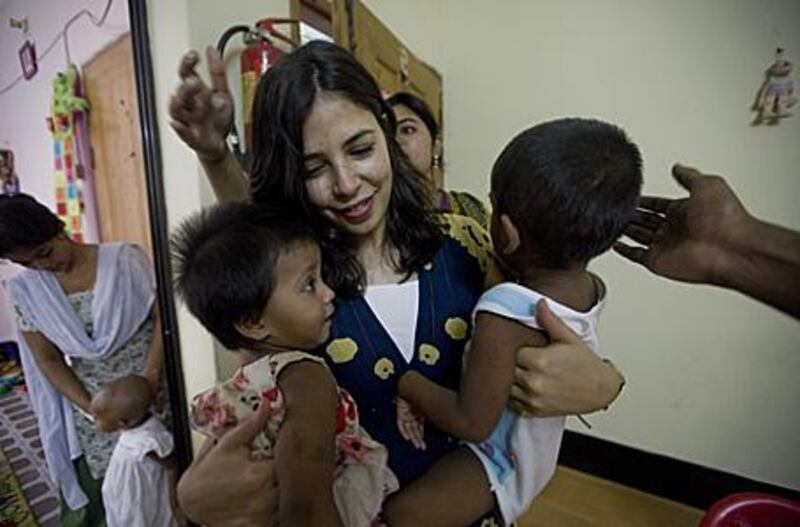DUBAI // A charity working with slum children in Dhaka is looking for volunteers for an initiative to teach their parents basic English to help them become self-sufficient. Established in 2005, The Dhaka Project, an organisation based in Dubai but operating in the Gawair district of the Bangladeshi capital, has provided education, health care and housing to hundreds of children. But the founder, Maria Conceicao, also believes in trying to break the cycle of poverty by giving their parents marketable skills.
"We shouldn't lose sight of the true potential of the slum-dwellers and all those living in extreme poverty," the Emirates Airline stewardess said from Dhaka yesterday. "We need to undertake a more challenging task in creating links that could control events that lead towards poverty. This task cannot be achieved by the traditional approach; it requires a more active initiative and vision to build a project that addresses the problems at roots."
Her answer is adult-education courses in subjects ranging from personal hygiene to embroidery and driving. However, because many jobs also require English, she wants to persuade volunteers from around the world to spend at least a week in Dhaka, teaching basic English - speaking, reading and writing. Several companies in both Dhaka and Dubai had expressed interest should the English classes work out, Ms Conceicao said, and she hoped to get about 300 people into paid employment by the end of the year.
Many people living in rural Bangladesh see the capital as an opportunity to earn money and change the future for their children. For most, the reality is rather different. With no education or skills, they cannot compete in the job market and end up in squalid little rooms held together with pieces of metal, wood and straw, surrounded by mosquitos and cockroaches. They eke out their existence with odd days of labouring work, perhaps driving rickshaws, doing shifts at the garment factories or working as housemaids for a pittance that does not even cover their living costs.
Returning to school, Ms Conceicao said, was not an option. "They can't afford it. Besides, due to the fact they are slum-dwellers, there is no one willing to teach them." Anyone who could teach English and is willing to give up the time to help was welcome to contact the project, she said - bearing in mind that they would have to meet all their own travel and accommodation expenses. "We carry no magic wand to change the slum dwellers, but we carry the winds of change, challenging them to think on their own and realise that change is possible," said Ms Conceicao.
"The lack of hope reduces them to robotic states, where no goals are considered. Instead they follow orders or old pattens without even thinking ? it becomes the norm." loatway@thenational.ae * For more information, contact misslangoria@gmail.com






